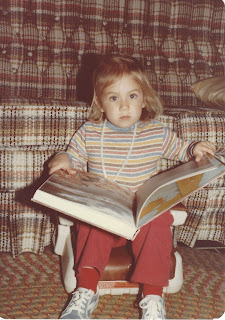Making Ourselves Clear
Some of the best writers I ever knew were my second-grade students. Little kids express themselves in clear and sincere words. Their grammar isn’t perfect, their spelling is awful, and their syntax is skewed, but their ideas radiate from the page.
Primary students’ writing is fresh, enthusiastic and inventive. It is personal and relational. “This was my experience. Do you share it?” Children love sharing their work. Sitting in the “author’s chair” and reading from a work-in-progress, students realize the power of writing.
Harold Evans, writer, editor, and social-commentator, promotes good writing in his book, Do I Make Myself Clear?: Why Writing Well Matters. He writes that “the right words are oxygen.” Words give life to ideas, experiences, and wisdom. Like air fills the lungs, good writing fills the mind and soul.
So if little kids love writing, why do adults fear it? Simply explained: The Grammar Police. Traditional writing lessons focused on grammar, usage, and punctuation. Red marks on the page! Points off for missing commas! Subject and verb agreement! Composition classes, more often exercises in getting the rules right rather than learning to express ideas clearly, turned students off to writing.
Many budding authors abandoned writing because lessons focused on the craft of writing rather than the substance. Yet clear writing depends on the rules which allow it to be universally understood. Grammar rules support understanding.
Good writers survived many grammar lessons. Today’s writing lessons focus on expressing meaning clearly. Teachers encourage children to write about their experiences, their feelings, their dreams, and their questions about life. Instead of wielding a red pencil, teachers share good books, pointing out how authors use words and the conventions of writing to tell stories, share information, and express ideas. Students, enthralled by these books, adopt the conventions that authors use. When they do, teachers and classmates applaud and confidence grows. The author’s chair is a place of honor, not a seat of fear.
Put down the red pen lurking in your mind, the fears that keep you from writing about the mysteries of your life, and sit in the author’s chair. Read good books and emulate the writing, not the structure, but the power of expression. Breathe oxygen into the world by sharing your experiences and ideas in writing.
Every little kid has something to write about. Every adult does too. William Hazlitt (1778-1830), considered to be one of the greatest critics and essayists in the history of the English language, wrote, “Words are the only things that last forever; they are more durable than the eternal hills.”
Sit down today and write. Write like a little kid, free from rules and sincere. Create a record of your life’s experiences and hard-earned wisdom. Be clear. Exercise your power of expression. Share what you write with your friends and your family. Become eternal. Leave something that will last.

